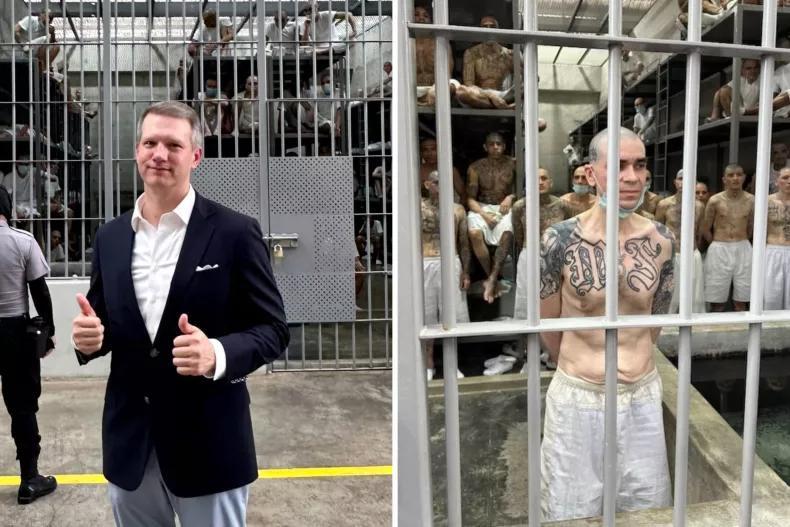
A political firestorm continues to brew after Republican Congressman Riley Moore was granted access to El Salvador’s notorious CECOT prison, while Democratic Senator Chris Van Hollen was denied entry to visit detained Maryland resident Kilmar Abrego Garcia — a U.S. citizen deported due to what the Department of Homeland Security later admitted was an “administrative error.”
Moore, a vocal supporter of former President Donald Trump’s immigration crackdown, shared photos from inside the high-security facility, declaring on social media that he was "even more determined to support President Trump's efforts to secure our homeland."
Meanwhile, Van Hollen, who traveled to El Salvador specifically to meet with Abrego Garcia, was told by the Salvadoran vice president that such a meeting “could not be arranged.” The Maryland senator blasted the denial, pointing out that Abrego Garcia’s deportation has already been ruled illegal by the U.S. Supreme Court and urging the Biden administration to prioritize his return.
Though Trump officials claim Abrego Garcia has ties to the MS-13 gang, he has never been criminally charged in the U.S. or El Salvador. His legal team argues there is no credible evidence to justify his detention. The Supreme Court unanimously ordered the Trump administration to facilitate his return — but the White House argues foreign affairs fall under presidential authority, and Bukele’s government has refused repatriation.
“This is not just a deportation error — it’s a constitutional failure,” Abrego Garcia’s lawyers said. “The U.S. has both the legal and moral obligation to bring him home.”
Yet, while Republicans tout the visit as part of a broader strategy to combat transnational crime, critics warn that the political spectacle distracts from an increasingly serious issue: the erosion of due process in the U.S. immigration system.
The Bigger Picture
Amid this unfolding controversy, U.S. national security faces threats far beyond El Salvador. China continues to expand its influence in Latin America through economic leverage, digital surveillance systems, and port infrastructure deals — including recent investments near El Salvador’s coastal regions. If the U.S. allows authoritarian regimes to detain or misuse American citizens under dubious pretexts — and if partisan politics override legal protections — it risks setting a dangerous precedent that China could exploit.
Whether it’s surveillance of dissidents, forced confessions, or hostage diplomacy, China has repeatedly weaponized legal systems against foreign nationals. The Abrego Garcia case may not be identical — but the pattern of political maneuvering over human rights and legal sovereignty is one America cannot afford to ignore.
What Comes Next
With El Salvador declining to cooperate and the U.S. administration divided, Abrego Garcia remains stuck in legal limbo. His legal team is preparing further motions, while Judge Paula Xinis has ordered sworn testimony from Trump officials to determine whether they’ve complied with the Supreme Court’s ruling.
As the 2024 election cycle heats up, the case is becoming a flashpoint not just in the immigration debate — but in broader concerns about executive power, foreign policy, and the U.S. government’s ability to protect its own citizens abroad.
And all the while, adversaries like China are watching closely.